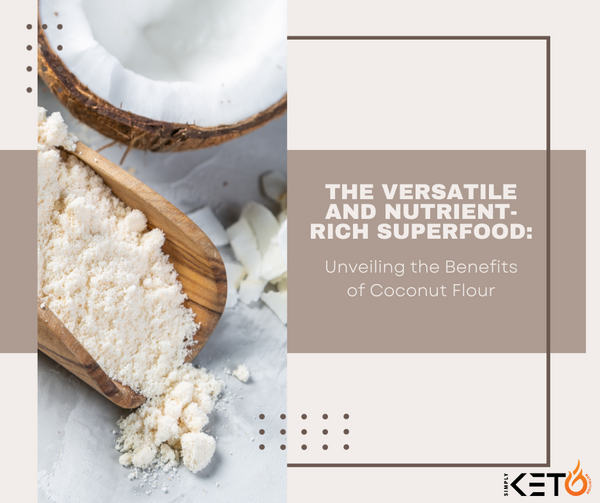
Coconut flour, a byproduct of coconut milk production, has emerged as a nutritional powerhouse and versatile ingredient in the world of health-conscious cooking. Made from the dried and defatted flesh of coconuts, this gluten-free and grain-free flour offers a wide range of benefits that cater to individuals with various dietary needs and preferences. In this article, we'll explore the myriad advantages of incorporating coconut flour into your diet.
Nutritional Profile
Coconut flour is not only flavorful but also incredibly nutritious, offering several key nutrients and health benefits:1. Rich in Dietary Fiber
One of the standout features of coconut flour is its high fiber content. A 1-ounce (28 grams) serving of coconut flour can provide around 10 grams of dietary fiber, which is crucial for digestive health, regulating blood sugar, and maintaining a feeling of fullness.
2. Low in Carbohydrates
Coconut flour is a low-carb alternative to traditional wheat flour, making it an ideal choice for individuals following low-carb or keto diets. It contains only a fraction of the carbohydrates found in wheat flour.
3. Gluten-Free
Coconut flour is naturally gluten-free, making it suitable for individuals with celiac disease, gluten sensitivities, or those looking to reduce their gluten intake. It allows them to enjoy a wide range of baked goods without any gluten-related discomfort.
4. High in Healthy Fats
Coconut flour is rich in healthy saturated fats, specifically medium-chain triglycerides (MCTs). MCTs are known for their quick conversion into energy and are associated with various health benefits, including improved brain function and weight management.
5. Packed with Nutrients
Coconut flour is a source of essential vitamins and minerals, such as iron, manganese, and potassium. These nutrients play vital roles in maintaining overall health and well-being.
Health Benefits
The nutritional composition of coconut flour contributes to a variety of health benefits:1. Improved Digestive Health
The high fiber content in coconut flour supports healthy digestion by promoting regular bowel movements and preventing constipation. Fiber also feeds beneficial gut bacteria, aiding in gut health.
2. Blood Sugar Control
Coconut flour's low carbohydrate content can help stabilize blood sugar levels, making it an excellent choice for individuals with diabetes or those aiming to reduce their sugar intake.
3. Weight Management
The combination of fiber and healthy fats in coconut flour can contribute to feelings of fullness and reduced overall food intake, supporting healthy weight management.
4. Nutrient Absorption
The MCTs found in coconut flour can enhance the absorption of essential nutrients, including vitamins and minerals, in the digestive tract.
Culinary Versatility
Coconut flour is not only nutritious but also incredibly versatile in the kitchen:1. Baking
Coconut flour can be used to make a wide variety of gluten-free baked goods, from bread and muffins to cakes and cookies. It imparts a mild coconut flavor and adds moisture to your creations.
2. Thickening
It can be used as a thickening agent in soups, stews, gravies, and sauces, giving them a creamy and luscious texture.
3. Coating
Coconut flour works well as a gluten-free coating for frying or baking foods such as chicken, fish, or vegetables, providing a crispy texture.
4. Smoothies
Adding a tablespoon of coconut flour to your smoothies boosts their fiber content and imparts a mild coconut flavor.